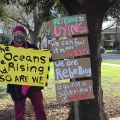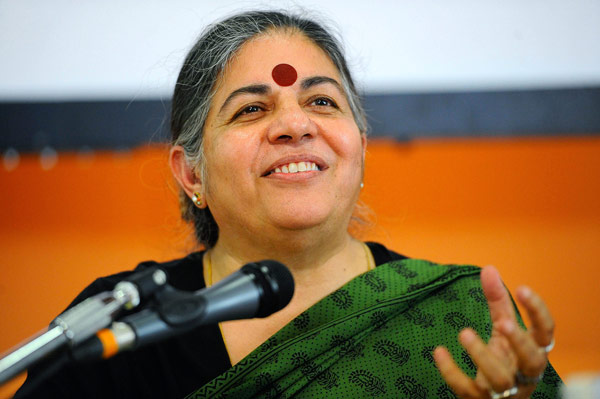From left, Mary Bricker-Jenkins, former WILPF liaison to the Poor People’s Campaign, Maureen Taylor, Chairperson of the Michigan Welfare Rights Organization, and Marian Kramer, President of the National Welfare Rights Union Board;. Those risking arrest at the July 19 protest wore the white sashes.
By Dorothy Van Soest
WILPF Liaison to the Poor Peoples Campaign
Member, WILPF Women, Money and Democracy Committee
August 2021
The two opening sessions of the WILPF Triennial Congress on Friday, August 13, will feature the role of women in the Poor People's Campaign. Rev. Dr. Liz Theoharis will be the keynote speaker followed by a session featuring “Women of the Poor People’s Campaign, Lifting from the Bottom from 1967 to the Present.” These two sessions will begin at 4:35 pm PDT / 6:35 CDT / 7:35 pm EDT on August 13. Register for the WILPF US Triennial Congress here.
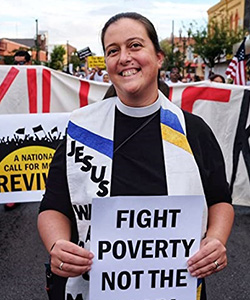 Rev. Dr. Liz Theoharis, co-chair of the Poor People’s Campaign, was among the nearly one hundred women from across the country who were arrested recently at the Poor People’s Campaign women’s march in Washington, D.C. on July 19. Mary Bricker-Jenkins, longtime WILPF activist, former WILPF Liaison to the PPC, and National Welfare Rights Union Board member, was also among those arrested.
Rev. Dr. Liz Theoharis, co-chair of the Poor People’s Campaign, was among the nearly one hundred women from across the country who were arrested recently at the Poor People’s Campaign women’s march in Washington, D.C. on July 19. Mary Bricker-Jenkins, longtime WILPF activist, former WILPF Liaison to the PPC, and National Welfare Rights Union Board member, was also among those arrested.
The protest against voter suppression marked the anniversary of the 1848 Seneca Falls Women’s Convention, the first women’s rights convention in the U.S. and a landmark moment in the fight for women’s suffrage. However, unlike Seneca Falls, which was a gathering of white women, this action was notable for including women of all races, identities, sexualities, abilities, creeds, incomes, and generations who gathered to protest the use of the Jim Crow filibuster and other procedural tactics by our current politicians to sidestep their Constitutional responsibilities to establish justice and ensure voting rights for all.
“173 years later, people are still being denied voting rights,” said Rev. Dr. Liz Theoharis, co-chair of the Poor People’s Campaign. “If we are trying to make the country a more perfect nation, it will take the leadership of all people — including women.”
The march began with a rally at the Supreme Court. As the women walked down First Street to the Capitol, police quickly began to arrest them for blocking traffic. After they were released from police custody, the women continued to express their collective power by gathering for more singing, clapping, cheering, and socializing at the Lutheran Church of the Reformation to the east of the Capitol.
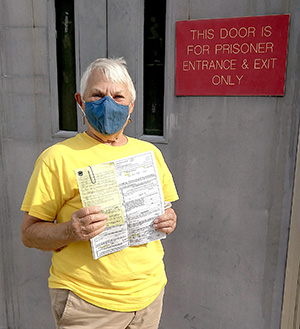 Those risking arrest wore sashes with these four demands emblazoned on them: End the filibuster; pass all the provisions of the For the People Act; fully restore the 1965 Voting Rights Act; and raise the federal minimum wage to $15 an hour. Those demands are part of a Poor People’s Campaign season of direct actions leading up to Aug. 6, the 56th anniversary of the Voting Rights Act of 1965.
Those risking arrest wore sashes with these four demands emblazoned on them: End the filibuster; pass all the provisions of the For the People Act; fully restore the 1965 Voting Rights Act; and raise the federal minimum wage to $15 an hour. Those demands are part of a Poor People’s Campaign season of direct actions leading up to Aug. 6, the 56th anniversary of the Voting Rights Act of 1965.
The purpose of the many actions being taken at state capitols and in DC is to strengthen the resolve of individual allies—and organizational partners such as WILPF—to stand up against injustice and to challenge the capitulation and inaction of those who have proven themselves to be adversarial to voting rights, economic justice, and the very foundations of our democracy.
The battle to suppress the vote is a tool of wealth distribution upward. Not only are we battling autocracy, but the possibility of descending further into a civil oligarchy. This fight is not just about Black or white. What we are witnessing are attacks on people of every race, creed, income, gender, sexuality, ability, and identity.
To change one word in what Rev. Liz said: It will take the leadership of all people — especially women.
Join Poor People’s Campaign protests in your area, participate in Moral Monday actions online, and call your Senators with the PPC demands. Information about all of these actions and more can be found at poorpeoplescampaign.org.

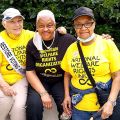

 Public banking allows cities, states, and communities to invest locally without depending on the big bad transnational Wall Street banks and investment houses. That means they can invest their pension funds and all public income (including parking tickets and fees for services) in local projects that keep those public funds invested in their own communities, not in far-flung projects that most of us don’t support. This has the potential to save cities and states millions of dollars annually and deprive profiteers of the capital they need to pursue profits over people and planet.
Public banking allows cities, states, and communities to invest locally without depending on the big bad transnational Wall Street banks and investment houses. That means they can invest their pension funds and all public income (including parking tickets and fees for services) in local projects that keep those public funds invested in their own communities, not in far-flung projects that most of us don’t support. This has the potential to save cities and states millions of dollars annually and deprive profiteers of the capital they need to pursue profits over people and planet.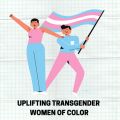


 Dr. Appala Raju Badireddy—an Assistant Professor in the Department of Civil and Environmental Engineering at the University of Vermont—will talk about his latest studies on the fate and transport of per-and poly-fluoroalkyl substances (PFAS) in environmental systems, and novel approaches for PFAS remediation.
Dr. Appala Raju Badireddy—an Assistant Professor in the Department of Civil and Environmental Engineering at the University of Vermont—will talk about his latest studies on the fate and transport of per-and poly-fluoroalkyl substances (PFAS) in environmental systems, and novel approaches for PFAS remediation. Dr. David Bond—Associate Director of the Center for the Advancement of Public Action at Vermont’s Bennington College—will talk about “The Reckless Rush to Incinerate Forever Chemicals.” Since 2015, Bond has worked to bring the scientific resources of colleges and universities into collaboration with communities impacted by PFAS contamination.
Dr. David Bond—Associate Director of the Center for the Advancement of Public Action at Vermont’s Bennington College—will talk about “The Reckless Rush to Incinerate Forever Chemicals.” Since 2015, Bond has worked to bring the scientific resources of colleges and universities into collaboration with communities impacted by PFAS contamination.
